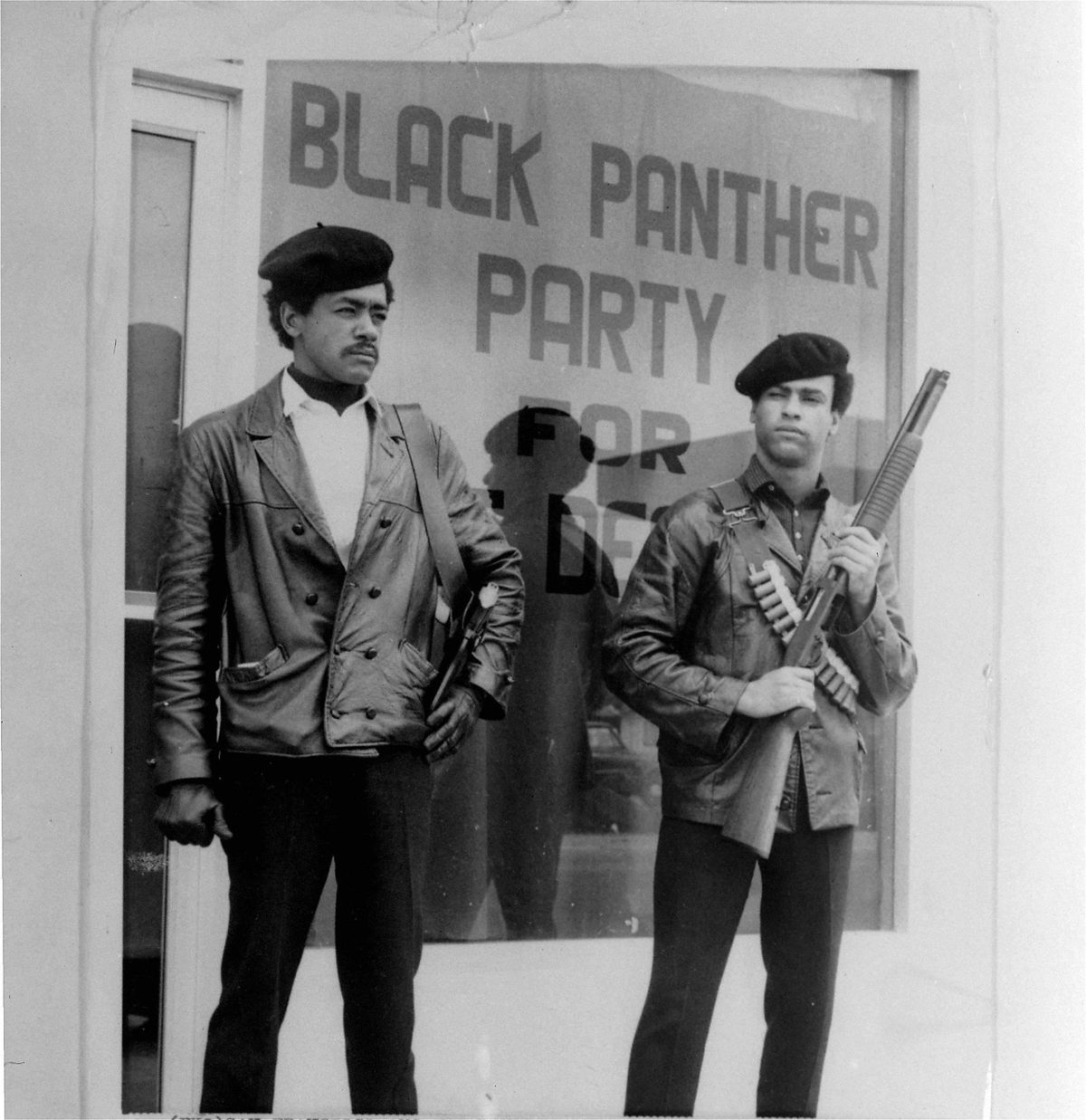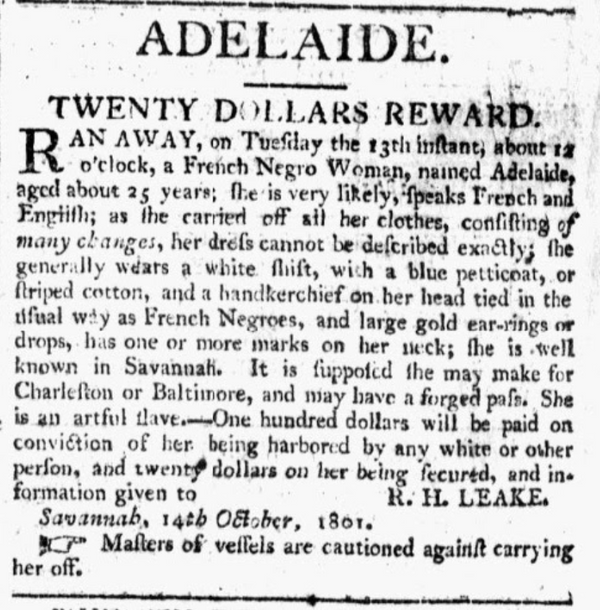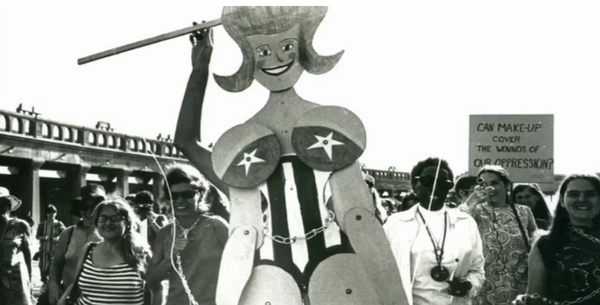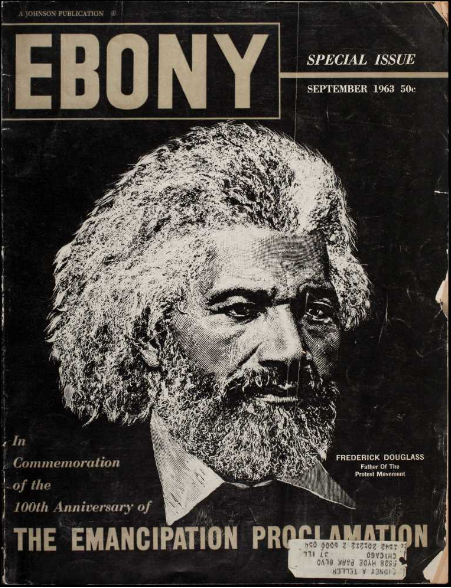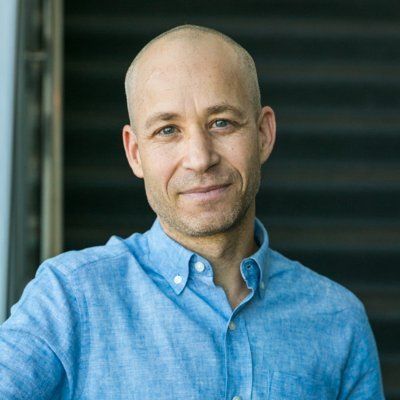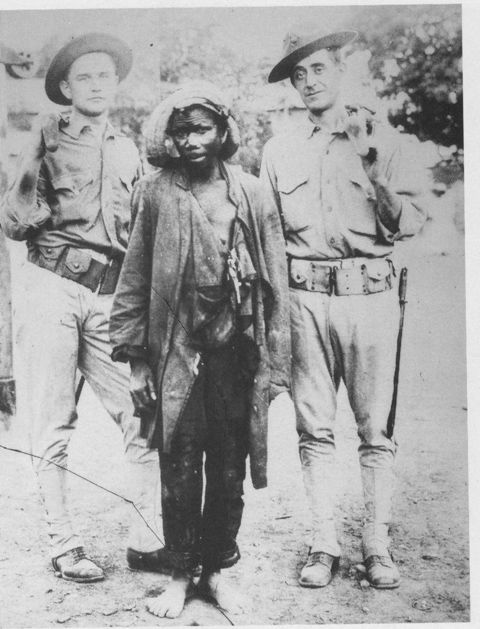Written by Nadean Alnajjar, JE 22'
Edited by Alexandra Halberstam, TD 22'
The Black Panther Party (BPP) only exists in our recollection today either as an evocation of the Marvel Universe’s Wakanda, or a radically militant Black organization from the 1960s. Representations of the BPP falsely characterize the party as menacing and destructive to society, while failing to acknowledge the BPP’s commitment to equity and community development. Most history textbooks shamefully fail to devote any attention to correcting our perception of them. As such, historical accounts of the BPP must be corrected to capture the progressive policies of the faction’s agenda.
If textbooks do write on the Black Panthers, often it is nothing more than one or two sentences that distort the party’s ideology and omit key details. For example, some textbooks, such as The Americans by Holt McDougal, completely omit the BPP’s socialist basis. McDougal simply writes, “Huey Newton and Bobby Seale founded a political party known as the Black Panthers to fight police brutality in the ghetto.”[1] This refusal to address the BPP’s Marxist foundations erases the faction’s fight against capitalism, which was inextricably linked to their fight against racism. Moreover, inaccurate and shallow descriptions of the BPP leave the reader with a deceptively and undesirably unbalanced image of the party, and this must be corrected.
The BPP’s use of armed resistance was a sharp contrast to perhaps more palatable forms of peaceful protest, and yet this form of social activism is justifiable. Their policy of “policing the police” saturated the news, as the media villainized the Black Panthers as aggressors of public safety.[2]However, the Black Panthers took up arms to advocate for self-defense, intending to eradicate Black oppression by combating police brutality in Black communities. The Black Panthers rejected the civil disobedience strategies employed by the Southern Christian Leadership Conference, led by Martin Luther King Jr. They instead believed that bearing arms was more effective, symbolically and literally, in challenging their oppressors who also brandished weapons and upheld white supremacy. This image resonated with many Black Americansl At the party’s peak, the BPP’s membership base was nearly 5,000 individuals.[3]
The Black Panthers are depicted today as radical extremists who aimed to antagonize and undermine white society. Namely, they are seen as anti-white, anti-law enforcement, and anti-American. Far from this depiction, the BPP dedicated significant efforts to building social programs that would strengthen and unify Black communities. Bobby Seale, cofounder of the Black Panther Party, attempted to exonerate the Panthers’ image, claiming, “We were not street thugs. We were avid readers and researchers.” Their visionary Ten Point Program outlined their vision of Black self-determinism, which involved sustaining the Black community outside of the municipal, state, and federal systems that failed to adequately provide for them. The BPP organized over 60 community service programs, such as the Free Breakfast for Children, Free Clothing, Free Employment, and Free Health Clinics. This part of their platform received little recognition, however, due to its lack of sensationalism. Patrolling the police, by contrast, was a more provocative story.[4] In their self-determinist ideology, the BPP was a vanguard in the fight against racism. While their organizational efforts go largely unrecognized in history textbooks, their promise of instilling community programs was precisely the reason why they attracted membership and rose to prominence.
The Black Panther Party is also falsely labeled as an anti-white organization. In reality, the BPP built multiracial alliances such as the Rainbow Coalition, which included the Puerto Rican Young Lords and the Southern White Young Patriots. The BPP assisted the Young Patriots in constructing their own community service initiatives. Additionally, the BPP supported the majority white Peace and Freedom Party in their bid for the 1968 presidency, running under the platform of an antiracist and anti-war alternative to the Democratic Party.[5]
The Black Panthers’ mischaracterization as violent and anti-white was perpetuated by the FBI, which ultimately led to the party’s demise. The Americans reads, “Public support for the civil rights movement declined because some whites were frightened by the urban riots and the Black Panthers.” More truthfully, the civil rights movement declined due to the intervention of FBI director J. Edgar Hoover, who made it his mission to eradicate the BPP. At this time period, the Cold War was ongoing, and anti-communist sentiment in the U.S. was rising. Capitalizing on this fear, Hoover claimed the BPP was the “greatest threat to internal security of the country," solely based on their socialist foundations.[6] The FBI went to cities like Richmond, Virginia, intentionally misinforming parents that the BPP was teaching their children anti-white racism. In one such case, the Chicago police broke into a church that hosted the BPP’s breakfast program, mashing up food and urinating on it.[7] The FBI’s efforts were successful; The Black Panthers were vilified by the public, and their programs were dismantled, ceasing operations by 1982.
The Black Panther Party’s history needs a rewrite. With their controversial approach of armed resistance – often exaggerated as unnecessarily aggressive, rather than a justified method of self-defense – the Black Panthers possessed the unflinching courage to combat police brutality and the vision to institute social and political policies that empowered Black society. Their community efforts for advancing equity should be highlighted, rather than their unconventional mode of protest. While they seemingly disappeared from politics, their core principles remain through the Black Lives Matter movement. Their message is the same: stop endangering Black lives. It is time we stop defaming the Black Panther Party. Even if their call for armed defense is no longer appropriate for our era, their principles were admirable, and their community programs immeasurably beneficial. They deserve more than a few lines in a history textbook.
Endnotes
[1] Adam Sanchez & Jesse Hagopian, “What We Don't Learn About the Black Panther Party-but Should,” Zinn Education Project, Huffington Post, October 19, 2016, https://www.zinnedproject.org/if-we-knew-our-history/black-panther-party-significance/
[2] Stanley Nelson & Laurens Grant, “'The Black Panthers, Revisited',” The New York Times, The New York Times, January 22, 2015, https://www.nytimes.com/2015/01/22/opinion/the-black-panthers-revisited.html?searchResultPosition=2
[3] Porter, Sarah, “Picking Up the Gun: The Black Panther Party and the Mulford Act,” Explorations Interactive, Explorations: The Texas A&M Undergraduate Journal, n.d. https://www.explorationsinteractive.com/picking-up-the-gun-the-black-panther-party-and-the-mulford-act.html
[4] “A Huey P. Newton Story - Actions - Survival Programs,” PBS. Public Broadcasting Service, 2002, https://www.pbs.org/hueypnewton/actions/actions_survival.html.
[5] Sanchez & Hagopian, “What We Don’t Learn.”
[6] “A Huey P. Newton Story - Hoover and the F.B.I.,” PBS. Public Broadcasting Service, 2002, https://www.pbs.org/hueypnewton/people/people_hoover.html
[7] Blakemore, Erin, “How the Black Panthers' Breakfast Program Both Inspired and Threatened the Government,” History.com, A&E Television Networks, February 6, 2018, https://www.history.com/news/free-school-breakfast-black-panther-party
Works Cited
“A Huey P. Newton Story - Actions - Survival Programs.” PBS. Public Broadcasting Service, 2002. Accessed November 16, 2019. https://www.pbs.org/hueypnewton/actions/actions_survival
“A Huey P. Newton Story - Hoover and the F.B.I.” PBS. Public Broadcasting Service, 2002. Accessed November 18, 2019. https://www.pbs.org/hueypnewton/people/people_hoover.html
Blakemore, Erin. “How the Black Panthers' Breakfast Program Both Inspired and Threatened the Government.” History.com. A&E Television Networks, February 6, 2018. https://www.history.com/news/free-school-breakfast-black-panther-party
Nelson, Stanley, and Laurens Grant. “'The Black Panthers, Revisited'.” The New York Times. The New York Times, January 22, 2015. https://www.nytimes.com/2015/01/22/opinion/the-black-panthers-revisited.html?searchResultPosition=2.
Porter, Sarah. “Picking Up the Gun: The Black Panther Party and the Mulford Act.” Explorations Interactive. Explorations: The Texas A&M Undergraduate Journal. Accessed November 29, 2020. https://www.explorationsinteractive.com/picking-up-the-gun-the-black-panther-party-and-the-mulford-act.html.
Sanchez, Adam, and Jesse Hagopian. “What We Don't Learn About the Black Panther Party-but Should.” Zinn Education Project. Huffington Post. October 19, 2016. Accessed November 18, 2019. https://www.zinnedproject.org/if-we-knew-our-history/black-panther-party-significance/.

